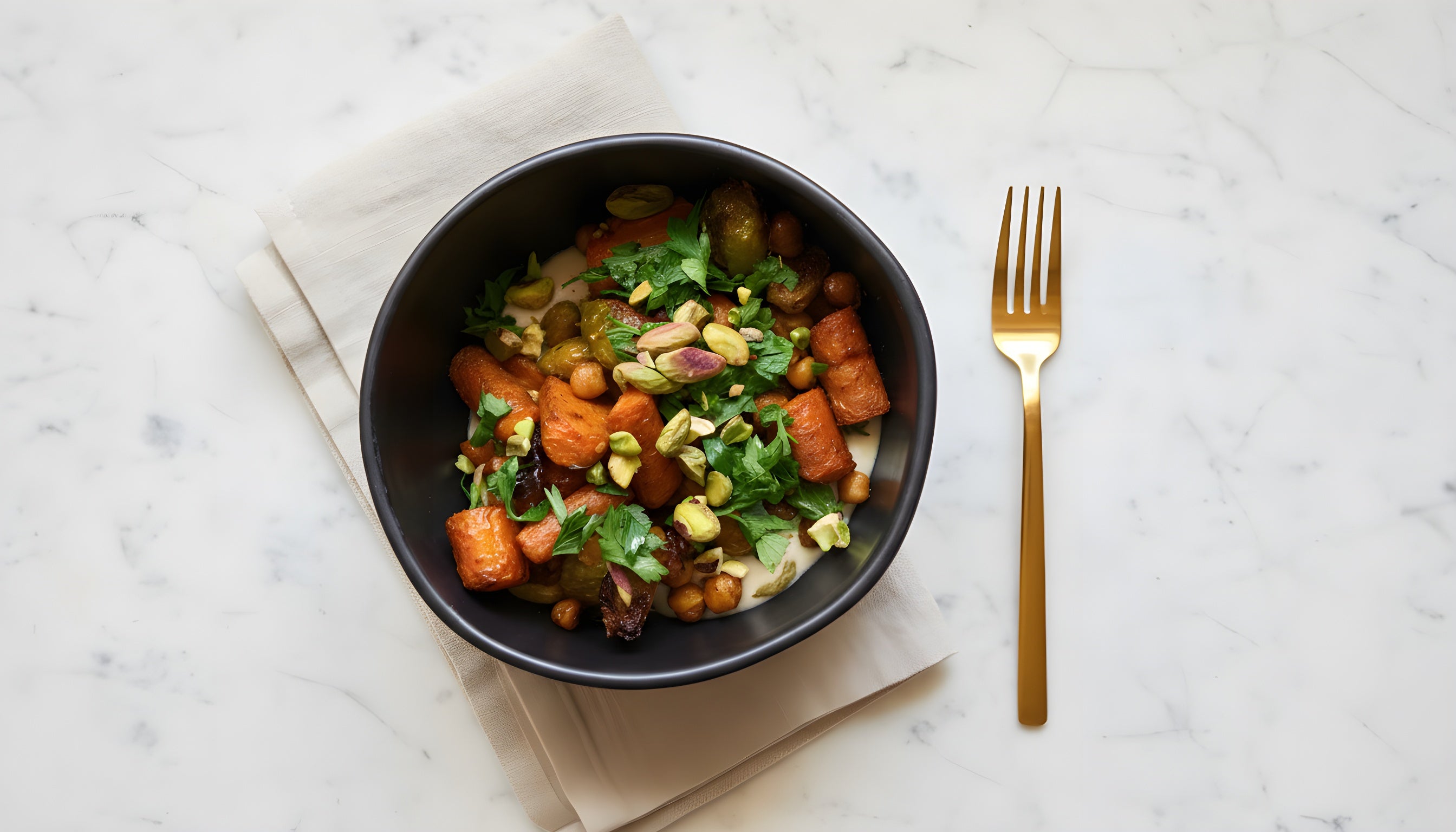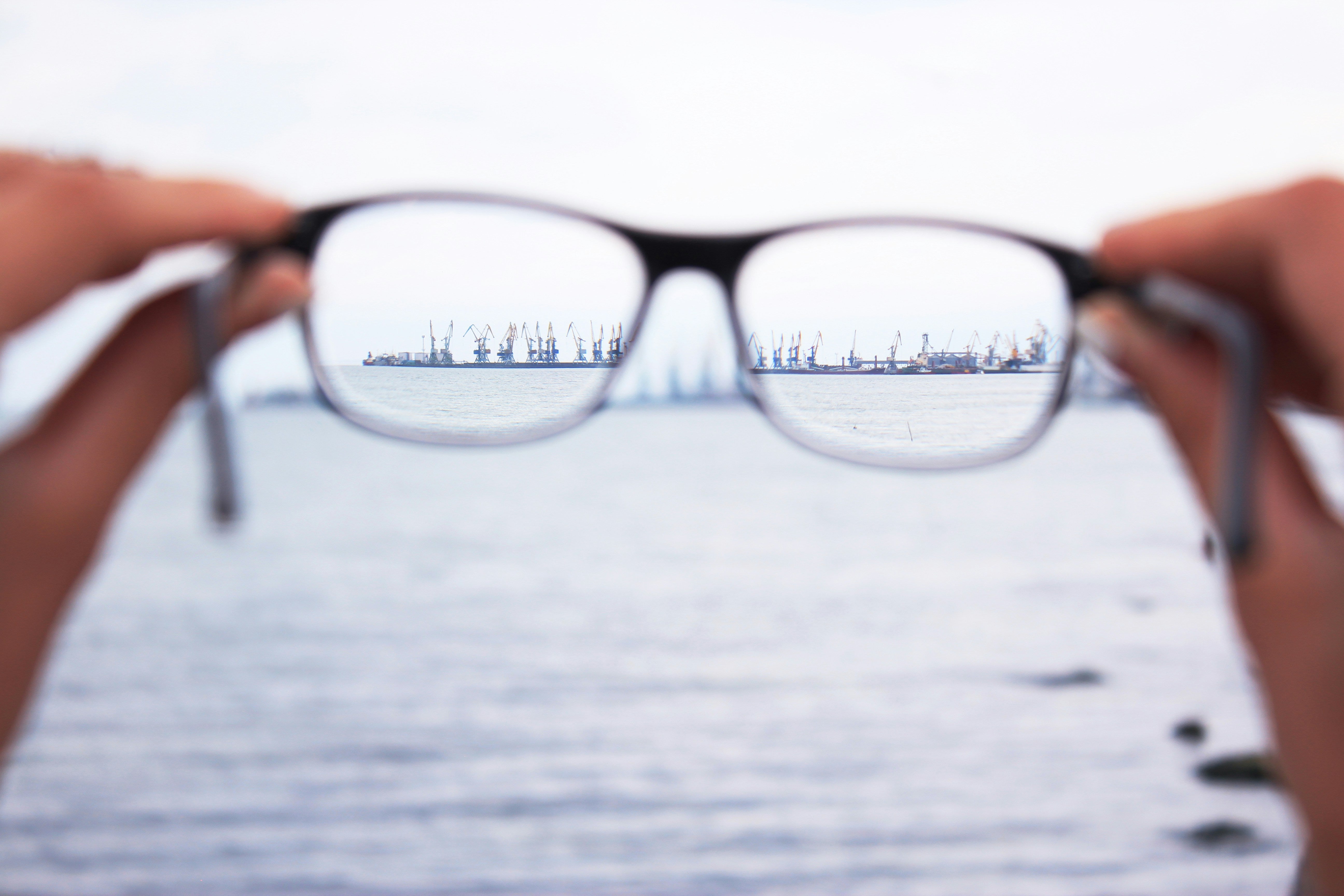While it is prohibited by law to discuss any impact the supplements we sell have on cancer, we can talk about the myriad of other things that you should do if you have cancer or if you’re wanting to prevent cancer (they are largely the same). Here, I’ll highlight the top four things you can incorporate into your lifestyle:
Eat Smart
Michael Pollan, professor of science journalism at University of California Berkeley and author of Omnivore's Dilemma, Cooked and The Art of Fermentation, is known for a variety of quotes surrounding food. My favorite quotes on avoiding processed foods come from his shorter book, Food Rules: An Eater’s Manual where he shares guidance on shopping and eating habits and says to never “get your fuel from the same place your car does,” and “if it came from a plant, eat it; if it was made in a plant, don’t.”
Never “get your fuel from the same place your car does.”
– Michael Pollan
And a significant reason for why the vast majority of processed foods should be avoided is because most are laced with genetically modified organisms. GMOs are known to cause intestinal permeability or leaky gut, harm a healthy microbiome, and cause significant inflammation. Soybean or vegetable oil and high fructose corn syrup are the most prevalent GMOs in processed food.
I distinctly remember Mara being at a clinic visit for her cancer care that went extra-long and she needed food and requested nuts. I went across the street to the Food Lion and looked at the 30-40 different nut options they had available . All of them had GMO oils (soybean, vegetable or cotton seed) as listed ingredients. I then walked through the aisles for about 30 minutes reading ingredients on processed foods; every one of them had GMOs.
Pollan hits his point home by saying the only way to know what you’re eating is to prepare it yourself.
So, cancer prevention tip #1 is to prepare your own food. Avoid eating out and processed food. Eat organic foods. Eat mostly plants; I shoot for 15% clean meats and 85% plants.
Avoid Environmental Toxins
My favorite class in public health school at Johns Hopkins was Environmental Public Health. The gist of the class was that there have been tens of thousands of chemicals introduced since World War II. On most of them, there is no data on what they do to humans since they are cost prohibitive to undertake. The class highlighted how we are continuously bombarded with chemicals in toxins in the environments in which we live. We’ve discussed ingestion and the foods above. But municipal water also has everything from pesticides to pharmaceuticals that our bodies need to deal with.
Besides ingestion, there is absorption of toxins through our skin. Until relatively recently, you could get arsenic poisoning from sitting at picnic benches as arsenic was used as a wood preservative. Our deodorant has aluminum in it, which can cause cognitive issues. Our toothpaste has fluoride, which is good for the teeth, but is a neurotoxin. Our soaps have things like sodium lauryl sulfate that helps make pretty lather but is highly toxic. This article goes into the various toxins in soap. And don’t get me started on how bad our sunblock lotions are. Oxybenzone, octinoxate, octisalate, octocrylene, homosalate and avobenzone are all known to be absorbed into the body from the skin and found in blood samples weeks after application as discussed here.
Coppertone initiated a nation-wide recall on of five of it's sunscreen sprays a few years back after finding benzene, a known cancer-causing chemical, in some of its batches.
The main point here is that we are all bombarded with toxins daily, and at some point, we may arrive at a toxic overload. These toxins can do anything from making us feel tired as our bodies spend loads of energy attempting to remove them to causing cancer. The best solution to this is to be aware of what you are inhaling, ingesting and absorbing and to limit your exposure to these toxic materials.
Cancer prevention tip #2: Buy brands with clean ingredients for your toiletries. I highly suggest Wellnesse, the natural personal care products brand put out by WellnessMama. Use reverse osmosis water filters for your drinking water. Use mild, natural cleaning supplies for bathroom cleaners.
Fasting
We’ve talked about this before. Fasting helps remove bad cells (autophagy) and bad mitochondria (mitophagy) in order to have new cells grow. These bad cells may be precancerous and have genetic issues that have yet to be repaired or are unrepairable. The fasting reduces these weakened cells as they cannot take the stress of the fast, and cannot transition to ketosis , where the body shifts to using ketones for energy.
I go into more detail about the benefits of a water fast here.
Tip #3: Do a water fast (3-5 day) or ProLon fasting mimicking program quarterly.
Exercise
I’m leaving the best for last. There is a saying that I did not coin, but I use often: “Exercise is king. Nutrition is queen. Together, you have a kingdom.” The benefit of exercise centers around the idea of hormesis: the biological processes where there is a favorable response to low exposure to stressors. Exercise stresses the body to give that favorable result.
And the benefits are plentiful: controlling weight, increasing muscle, combating disease, improving mood, boosting energy, promoting sleep, and improving overall quality of life. With a focus on cancer prevention, the benefits are pretty much the same with one addition: autophagy. With exercise, there is an acute increase in autophagy during the exertion and drop off afterwards. This is in contrast to fasting, where there is a constant autophagy while being in the fasted state.
In 2010, Thomas Seyfried published an article, and years later a book on cancer being a metabolic disease, not a genetic one. The idea is that tumor cells have a metabolic profile different from normal cells. It is agreed that cancer cells have a more rapid proliferative rate, which is the idea behind why chemotherapy works: kill the faster growing cancer cells before you kill all your normal cells. But, cancer cells also have impaired cellular energy metabolism.

While normal cells use oxidative phosphorylation which is the use of oxygen to transform glucose into ATP and has the byproduct of carbon dioxide. This is also known as the Krebs or TCA Cycle and is why you breathe in oxygen and breathe out carbon dioxide. Cancer cells, however, use a much less efficient metabolic pathway called glycolysis, as seen in the figure. The stress of exercise can cause cancer cells as well as the predecessors to cancer cells to die off as they cannot keep up with the metabolic demands.
Tip #4: So, the takeaway is that exercise has many, many benefits. Get your heart rate up at least 15 minutes a day. Walking is a good place to start. Start slow but keep it going daily and build up.
There are other things to say about cancer prevention and holistic cancer care including the importance of supplements as well as restorative sleep. But these four tips are a great place to start.







0 Comment